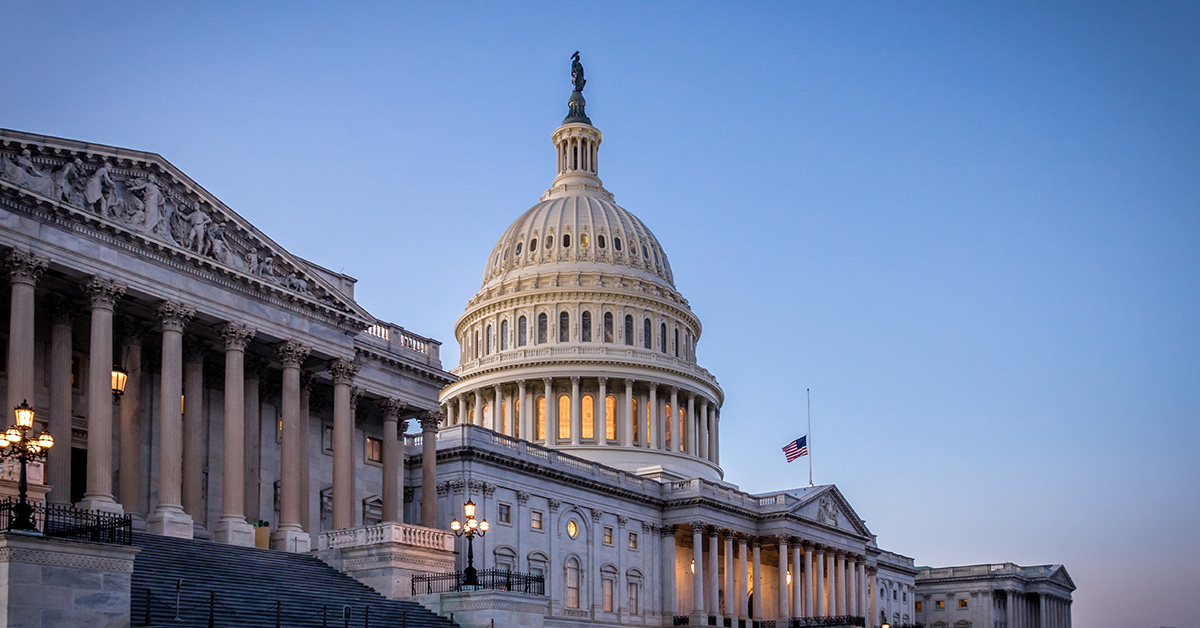 Yesterday, Senate Majority Leader Mitch McConnell introduced the HEALS Act, the first step in negotiations toward passage of the next coronavirus relief package. I’ve attached the section by section and wanted to first give you a few headlines related to local government needs:
Yesterday, Senate Majority Leader Mitch McConnell introduced the HEALS Act, the first step in negotiations toward passage of the next coronavirus relief package. I’ve attached the section by section and wanted to first give you a few headlines related to local government needs:
- The HEALS Act does not allocate additional state and local aid beyond what was already allocated under the CARES Act’s $150 billion Coronavirus Relief Fund, but does provide some flexibility for previously allocated CARES Act dollars. This flexibility would allow for CARES Act money to be spent past the original December 30, 2020 deadline, and expand allowable uses of relief payments to include lost revenue. However, only 25 percent of these funds could be used towards revenue shortfalls.
- The HEALS Act does contain some public health resources to help local governments to continue to respond to the coronavirus pandemic. It would allocate $16 billion for testing, and an additional $25 billion for the hospital/provider fund, as well as $15 billion for child care including a new flexible grant program.
This bill is the Senate Republican answer to the House-passed HEROES Act, which is more than triple in size from a funding perspective and includes $1 trillion in direct payments to locals.
Some of the other key provisions in the HEALS Act:
Unemployment Insurance
Pandemic-related federal supplemental unemployment benefits for millions of people in the U.S. begins running out on Saturday. This plan extends the added benefits at a rate lower than the $600 per week enacted as part of the CARES Act in March. For two months, the benefits would be set at $200 per week on top of state-level benefits, which vary. After that, states would provide benefits equal to 70% of previous wages, with the federal supplement additionally capped at $500 per week.
Direct Payments
The HEALS Act includes a second tranche of stimulus payments, structured the same way as the earlier round, in March. The plan provides $1,200 payments at individual incomes of $75,000 or less a year, with $500 in benefits for each child or adult dependent. The bill passed by House Democrats two months ago also includes $1,200 stimulus payments, but has $1,200 benefits per child or adult dependent, up to a total of $6,000 per household.
Education Funding
The bill would provide $105 billion, with $70 billion going to elementary, middle and high schools; $29 billion for colleges and universities and $5 billion to a flexible fund. Two-thirds of the money would go to schools that institute reopening plans and the rest to schools generally, under existing federal formulas. The White House has fought to tie school aid to reopening plans, but Democrats are opposed.
Liability Protections
The GOP bill shields businesses, schools, charities and other organizations from Covid-19-related lawsuits through Oct. 1, 2024, as long as they make “reasonable” efforts to follow public health guidelines and don’t commit acts of “gross negligence” or “intentional misconduct.”
Small Business Loans
The plan would extend the Paycheck Protection Program of forgivable small business loans, adding $60 billion to a facility that still has $130 billion left from the last stimulus. Small businesses with fewer than 300 employees that can show revenue losses of 50% or more since the pandemic began would be able to apply for second PPP loans. The plan has $100 billion in long-term, low-cost loans to “recovery sector” businesses, such as seasonal businesses and those located in low-income areas. These small businesses must demonstrate at least a 50 percent reduction in revenues.
Hiring Tax Credit
The legislation includes an expanded version of the employee retention tax credit for businesses that keep workers on their payrolls. The break gives companies an additional incentive to keep people employed as many firms still face revenue downturns but have run out of Paycheck Protection Program money or never qualified for it. The credit, which has broad bipartisan backing, is refundable against payroll tax liability, meaning that companies could get a check back from the IRS if they qualify for a larger tax break than the payroll taxes they owe. The legislation also expands a tax credit for large businesses to hire individuals who are unemployed.
FBI Headquarters
At the White House’s insistence, the bill contains $1.75 billion for a new Washington headquarters for the Federal Bureau of Investigation. The project has been a priority for Trump, who owns a hotel across the street from the current building.
Farm Aid
The Republican proposal would provide $20 billion in aid for agriculture, delegating broad discretion on spending to Agriculture Secretary Sonny Perdue. The legislation would allow Perdue to use the aid to compensate livestock producers for losses from killing animals that couldn’t be sent to slaughterhouses because of virus-related shutdowns and slowdowns.